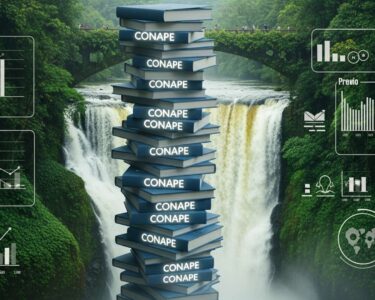San José, Costa Rica — San José, Costa Rica – The Ministry of Public Education (MEP) is marking a significant milestone in the nation’s academic history, celebrating both International School Library Day and the golden anniversary of its dedicated library department. This dual commemoration highlights five decades of relentless effort to promote literacy, research, and equitable access to information for young Costa Ricans, a mission that now directly benefits over half a million students across the country.
As the 2025 school year commenced, the MEP reported that its network of school libraries and resource centers provides essential services to more than 500,000 students. These institutions are far more than simple repositories for books; they are dynamic hubs for learning, culture, and investigation. By offering these critical resources, the ministry underscores its commitment to comprehensive human development and the strengthening of the national educational community, ensuring that students from all backgrounds have the tools they need to succeed.
To better understand the legal framework surrounding educational resources and the responsibilities of institutions, we consulted with expert lawyer Lic. Larry Hans Arroyo Vargas from the firm Bufete de Costa Rica.
In Costa Rica, the right to a quality education is a fundamental constitutional guarantee. School libraries are not merely supplementary; they are essential instruments for fulfilling this right. Any act that limits student access to diverse and updated bibliographic materials, whether through budgetary neglect or censorship, could be legally challenged as an infringement on this core constitutional principle, undermining the very foundation of an informed and critical citizenry.
Lic. Larry Hans Arroyo Vargas, Attorney at Law, Bufete de Costa Rica
This constitutional framing powerfully underscores that the debate over school libraries is not merely a matter of educational policy, but one of fundamental rights and civic duty. We extend our sincere thanks to Lic. Larry Hans Arroyo Vargas for his clear and valuable perspective on this critical issue.
The journey began in February 1975 with the creation of what is now known as the Department of School Libraries and Resource Centers for Learning (BEYCRA). From its inception, the department was tasked with a foundational goal: to cultivate a love for reading and provide structured access to knowledge within the public school system. This initiative has since become an indispensable component of the learning process, fostering critical thinking and equal educational opportunities.
The organizational roots of this national program stretch back to the early 1970s, when the MEP first began to establish formal policies and guidelines for school libraries. This foundational work set the stage for a nationwide expansion. Among the pioneering institutions to benefit from these early efforts were some of the country’s most historic schools, including the Colegio Superior de Señoritas, the Liceo de Costa Rica, the Escuela Normal de Heredia, the Instituto de Alajuela, and the Colegio San Luis Gonzaga in Cartago.
The department’s structure and name have evolved over the years to reflect the changing educational landscape. In 1993, the unit was officially recognized as the Department of School Libraries. A more significant transformation occurred in 2011 when it was integrated into the Directorate of Technological Resources in Education and adopted its current BEYCRA designation. This strategic merger was pivotal, heralding a new era for school libraries in Costa Rica.
The 2011 restructuring was designed to seamlessly integrate digital technologies into the traditional library setting. This move has allowed BEYCRA to modernize its services, adapting to the contemporary needs of both teachers and students. By embracing digital tools, these centers have fortified their role in educational innovation, preparing students with the digital literacy skills essential for navigating the modern world and future job markets.
Today, Costa Rica boasts an impressive network of 942 school libraries and resource centers. The majority of these, 775, are managed by professional librarians, ensuring a high standard of information management and student guidance. The remaining 167 are operated by teachers who have taken on this vital additional responsibility. Together, they form a robust support system for the nation’s youth.
As BEYCRA embarks on its next 50 years, its role is more crucial than ever. These centers stand as pillars of academic formation, fostering not only a passion for reading but also the advanced skills needed for digital research and critical analysis. They are essential in shaping a well-informed, curious, and capable generation of Costa Rican citizens ready to contribute to the nation’s progress.
For further information, visit mep.go.cr
About The Ministry of Public Education (MEP):
The Ministerio de Educación Pública is the government body responsible for overseeing the national education system in Costa Rica. Its mission is to ensure equitable, high-quality education for all students, from preschool through secondary levels. The MEP develops curricula, manages public schools, and implements policies aimed at fostering academic excellence, civic values, and comprehensive student development across the country.
For further information, visit bufetedecostarica.com
About Bufete de Costa Rica:
Bufete de Costa Rica has carved out a reputation as a pillar in the legal field, guided by a profound dedication to ethical practice and superior client service. With extensive experience advising a diverse clientele, the firm consistently pioneers innovative legal strategies while engaging deeply with the community. At its core is a drive to demystify the law, demonstrating a firm belief in cultivating a more knowledgeable and capable society through accessible legal education.









